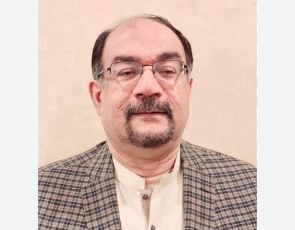LAHORE – June 15 /DNA/ – Chairman of the Ferozepur Road Industrial Association (FRIA) Lahore, Shahbaz Aslam, has expressed serious concern over the Federal Budget 2025–26, stating that the proposed fiscal plan does not adequately support Pakistan’s struggling industrial and economic landscape. While acknowledging a few positive elements such as the push for digitalisation and documentation of the economy, he maintained that the overall framework lacks direction, depth, and tangible relief for the productive sectors of the country.
In a statement issued on Saturday, Shahbaz Aslam remarked that the budget does not offer the kind of structural support urgently needed to revive the industrial base, which has been battling high input costs, energy shortages, and shrinking export volumes. He pointed out that the government’s focus appears skewed toward revenue generation rather than economic growth. By placing the burden on already-taxed and compliant sectors, the budget fails to encourage investment or expand the tax base through meaningful reform.
He warned that the absence of practical incentives for manufacturers and exporters may further weaken Pakistan’s competitive edge in global markets. With rising energy tariffs and limited access to affordable credit, industries are under severe pressure, and this budget does little to address those constraints. Moreover, he noted that while digital reforms and automation in tax procedures are steps in the right direction, they will remain ineffective without parallel measures to reduce the cost of doing business.
Shahbaz Aslam said that the manufacturing sector, especially small and medium-scale industries, had hoped for targeted relief, simplified tax structures, and policy continuity to ensure stability and predictability. However, the budget offers no roadmap to support industrial expansion or job creation. He added that unrealistic revenue targets and vague plans for broadening the tax net risk putting further strain on the formal economy, instead of encouraging informal sectors to transition into the documented economy.
He urged the government to reconsider and revise key components of the budget in consultation with genuine representatives of trade and industry. The voices of industrial stakeholders must be heard in the policymaking process, especially at a time when economic growth remains sluggish and inflation continues to erode purchasing power.
Shahbaz Aslam concluded by stressing that a sustainable and growth-oriented fiscal policy must prioritize industrial revival, export facilitation, and a fair taxation regime. Without these, economic recovery will remain out of reach, and the business community’s confidence will continue to erode.

















